At age 94, Ruth Blank, a Jewish American who escaped Nazi-occupied Poland during World War II and now lives on the west side of Los Angeles, saw a psychiatrist for the first time in her life.
To their family, Ruth and her husband of more than 60 years, Robert "Roman" Blank, both now 96, were deeply in love. They raised two daughters and had a successful chain of hair salons. To all appearances they were the definition of immigrants who fully realized the American dream.
"Watching them on the dance floor at weddings and bar mitzvahs, they were like Fred Astaire and Ginger Rogers," says their younger daughter, Lili Gross, 63. "The look on my mother's face -- she was literally in heaven being held and swept off her feet by my father's lead."
But a very different story boiled beneath the surface. Since 1953, the Blanks have kept a secret. One night that year, in their Brooklyn apartment, Ruth, tending to their two young daughters, confronted Roman about where he had been when he came home late. That's when Roman told Ruth he was gay.
"I was brokenhearted all those years," Ruth, who now lives on the west side of Los Angeles, says in a video interview recorded by the family in 2016. Though she'd once been the vibrant, life-of-the-party type, soon after that recording, she became bedridden and uncommunicative.
But her gray hair is dyed the platinum blonde of her heyday, and her nails are painted vixen red. She accessorizes in shiny jewelry atop sweatshirts and tracksuits.
"I sacrificed my life for my children," she says in the video. "I had the children, I want them to have a father, we stuck together. Now at this point, we are 96, we love each other, we live together 65 years -- 65 years I live like that."
Ruth and Roman grew up in neighboring towns in central Poland, surrounded by pine trees and bitterly cold winters. Their families knew of each other but were not close. Roman's father was an Orthodox Jewish scholar who died when Roman, one of four children, was still young. Ruth's father also died young, leaving her, her mother, two sisters, and a brother impoverished.
In 1939, both Germany and the Soviet Union occupied Poland. It's unclear how Ruth and her family ended up in a Siberian work camp, whether they fled there for asylum or were arrested and deported. According to their children, they fled on a train, but details are fuzzy. Within the two years of Soviet occupation of Poland, hundreds of thousands of Poles ended up in the gulags, or forced-labor work camps, in remote areas of the Soviet Union. At that same time Roman and his brother obtained visas to Russia, leaving his mother and two sisters, who were unable to obtain passage, behind in Poland.
 Six years later, when Allied forces liberated the concentration camps, Roman and Ruth, separately, returned home. In the Siberian work camp, Ruth's family avoided the concentration camps; Roman's sisters and mother, he was told, had been buried in the town's mass grave, slaughtered either before entering a concentration camp or after their release from the camps during the pogroms, anti-Semitic uprisings and mass murders that took place throughout Poland following the war.
Six years later, when Allied forces liberated the concentration camps, Roman and Ruth, separately, returned home. In the Siberian work camp, Ruth's family avoided the concentration camps; Roman's sisters and mother, he was told, had been buried in the town's mass grave, slaughtered either before entering a concentration camp or after their release from the camps during the pogroms, anti-Semitic uprisings and mass murders that took place throughout Poland following the war.
Like many Jews, they found that their homes in Poland were gone, either sold or destroyed by the Third Reich. Although the two barely knew each other, Roman learned that Ruth had survived the war. They belonged to the same pro-Zionist political organization and both lived in displaced-persons camps in Germany. Roman wrote to Ruth in Stuttgart, where she was living, and soon traveled there to ask for her hand in marriage.
Today the couple share an apartment on one of the upper floors of an elegant nursing home near Beverly Hills, the grand hallways clad in gold-tinted walls and filled with abundant fresh flowers on stately end tables.
"He was so happy that he found me," Ruth says in the video, recounting their courtship, her voice shaking with emotion. "He asked my mom to give me permission to marry him." She jokes about telling her mother that she "slept with Roman," because she kept a photo of him under her pillow. "And so it was in January [of 1948], very cold in Germany, we married."
Roman, on the other hand, looked at their marriage as more of a means to an end than true love.
"In the camp where I was living at that time, there was a girl that I knew from my hometown. She said to me, 'Do you know Ruth is looking for you?' " he says, sitting in the living room of their apartment, where he also sleeps, and where he had been reading a Polish dictionary. Roman is bald, pale, and thin, with an energetic personality that belies his frail body. He speaks matter-of-factly, often pausing for emphasis or dramatic reflection. His accent, like Ruth's, is a bouncing and musical combination of old Europe and Yiddish.
"I sent a telegram, telling her I was coming," he says. "That was the biggest mistake I made in my life at that time. But I had no choice. That was the way the world dictated: either you live or you die. So I see her and decided to get married. This was against my better belief, against my nature. Why? I don't understand it. But that was the urge to live. And of course, very shortly after that, we decided to get married."
Immediately after the Holocaust, those who fled and survived married each other at high rates. Dr. William Helmreich, a sociologist at the City University of New York, studied this trend among survivors. He told The New York Times in 1992, "In interview after interview, [these people] said how they appreciated that their spouses could understand their sense of loss and their anxieties."
"I hated the way she was born normal," Roman says of Ruth's being straight. "I hated normal people, like they hated us." He pauses for a moment, and a deeper melancholy sinks in. "I should have been buried with my mother," he says. "To be gay was a crime, and you were condemned to choose either suicide or life in a closet. I decided to live."
During World War II, Germany and its occupied territories were subject to a law known as Paragraph 175, which criminalized homosexuality. It's estimated that between 1933 and 1945, some 100,000 men were arrested for homosexual activity and between 5,000 and 15,000 of them sent to Nazi concentration camps. For those who were not killed, the Nazis believed homosexuality could be cured through humiliation, torture, and medical experiments.
Despite the imminent danger, Roman acted on his sexual impulses. He recalls his first experience with a man, in Poland, describing it as "heaven on earth."
"I was about 11 or 12, and I was already sexually aware. There was a dance club. They were dancing -- older people. Kids were not allowed inside, but we were allowed in the hall. So there were about 50 to 80 kids. This guy was so close to me. He was all the time rubbing me. That's where it started. We lived in the same town. We used to go out at night in the fields, near the cemetery. I was so afraid, but he wasn't. He was the son of a policeman. I can see him now." His tone grows angry as he considers the life he might have had.
In exile in Russia, Roman was able to act on his impulses to be with men, albeit secretly. He had a gay next-door neighbor in the apartment building where he lived.
"I knock on the wall, he knocks, I knock back, he came in," he recalls. "I loved him so much. The son-of-a-bitch [government] took him away [to the army]. In the war, he probably got killed. You never can imagine such a sweet face, such a sweet body."
Shortly after his marriage to Ruth, Roman's cousins sponsored the newlyweds for citizenship, and they settled in Brooklyn.
Soon, their first child, Susan, and second child, Lili, were born. Ruth took care of the children, and Roman worked as a jeweler.
Roman had many lovers in New York. "Not that I loved -- I call it a lover," he says. He would tell Ruth he was getting a massage at the bathhouse so that he could meet up with the men.
On that night in 1953, Ruth called up the bathhouse to speak to Roman. "They said I wasn't there. I came home," he says. "Of course I told her. What else could I do? She made up her mind, she had no choice, because the kids were number one. She kept it together."
"We made up our minds that we are going to try to be happy. It came to the point we should have split," Ruth says, in tears, in the recorded interview. "We go through life the best we could, we love each other -- I'm not talking sexually. Love each other like sister and brother. But I suffered plenty. I was a young woman, you know?"
They moved to Los Angeles when their daughters were young. According to the girls, there were no signs of any problems between Ruth and Roman.
"Our house was the go-to place for all our friends," says Gross, a striking, vibrant woman with gray and pink hair. "My parents had an open-door policy and made every one of our friends welcome. My friends loved my parents."
Ruth and Roman did everything together. In hindsight, it was because "[Ruth] had to keep an eye on him," says Susan Cohen, 66, their elder daughter, whose neatly coiffed dark hair, fair complexion, and bright red lipstick mirror her mother's yesteryear glamour. She describes her father as having always been "very animated," adding that he "loved to sing and dance. Everybody loved him."
 During the 1970s, once their girls had moved out, Roman frequently disappeared for weeks on end. He'd have affairs, then return to Ruth after a lover left him, or robbed him, or both. He says he could never find what he was looking for in these men; he could never fall in love.
During the 1970s, once their girls had moved out, Roman frequently disappeared for weeks on end. He'd have affairs, then return to Ruth after a lover left him, or robbed him, or both. He says he could never find what he was looking for in these men; he could never fall in love.
"Always something in between. There was always an obstacle. That was my life," he says.
Ruth would grow anxious without Roman and become mentally unstable. For decades they teetered on the edge, worried the truth would be revealed, but they always reunited to maintain appearances.
For Roman, this period was particularly dark. He says many men were just after his money. "Most of them were using me. I was used to it. I wasn't even hurt."
During the AIDS epidemic in the 1980s, Roman quit having sex with men altogether and became resigned to living in the closet, until two years ago, when his daughters noticed Ruth behaving strangely. They suggested she see a psychiatrist to get medication. She did, and almost immediately she revealed her husband's sexual orientation to her therapist.
Gross says it amounted to Ruth hitting a wall. "She couldn't deal with the secret anymore. The truth really set both of them free."
That day, when Cohen asked how therapy went, Ruth flatly proclaimed that Roman was gay.
The family spiraled into disbelief. Everything they'd known had been a lie. But after a million questions were asked, acceptance settled in.
"The news definitely changed my relationship with my father in that I wanted to know everything about him now," says Gross. "I wanted to know the father that he hid from us. I loved so much that he didn't take this secret to his grave. I love that both my parents were brave enough to disclose this truth so that we could better understand their plight in life."
Cohen recalls, as a young woman in the 1970s, judging her mother for not being more of a feminist. "I used to think of my mother as weak, needy, and clingy to Roman," she says. "But now I see how strong she was. She did all this for her family. Now I apologize to her, apologize for not recognizing just how strong she really was."
"I love her as a person -- that's something different," Roman says of Ruth. "I feel she is the most wonderful person in the world, her nature, her behavior, her love, everything. I can't picture any woman going through what she went through and going on."
Roman continues, "She suffered, and she still suffers, to this day. But she's so much in love with me, no matter what I would do, you know? I never saw anything like it in my whole life. I don't know of anybody like that. This is what hurts so deep. Why live like that? Would you live like that? No, nobody would."
Like what you see here? Subscribe and be the first to receive the latest issue of Out. Subscribe to print here and receive a complimentary digital subscription.
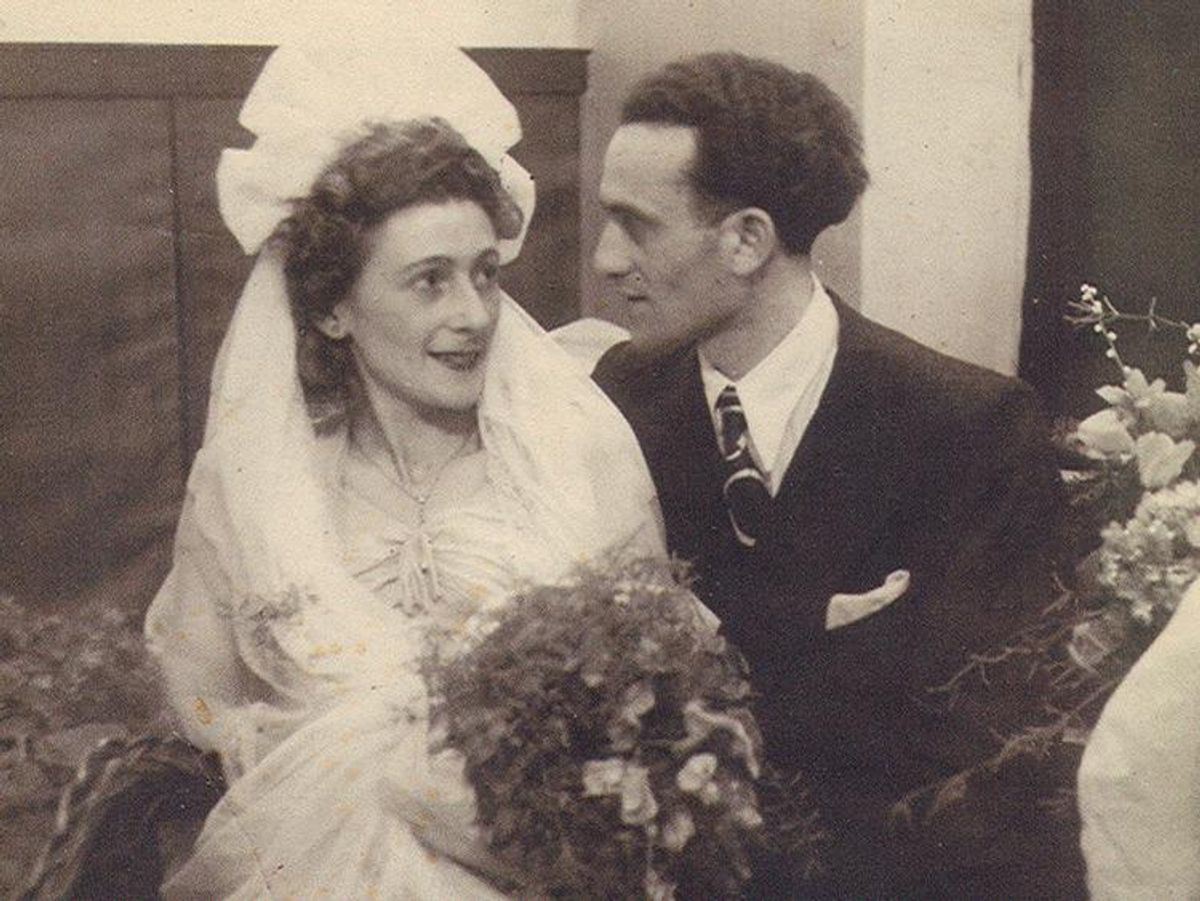



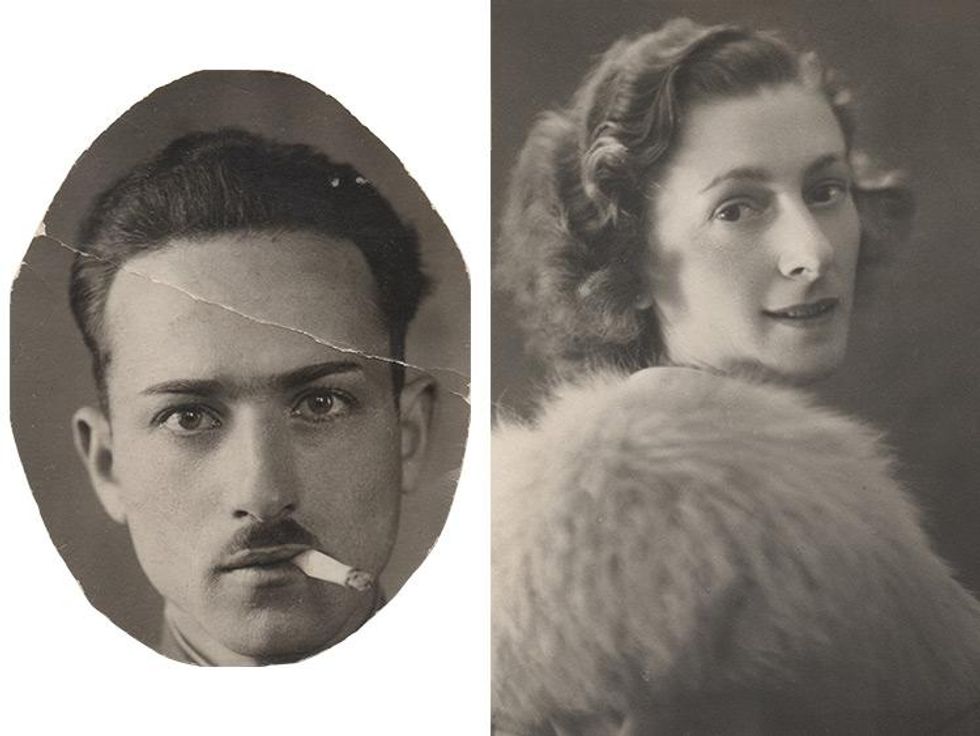 Six years later, when Allied forces liberated the concentration camps, Roman and Ruth, separately, returned home. In the Siberian work camp, Ruth's family avoided the concentration camps; Roman's sisters and mother, he was told, had been buried in the town's mass grave, slaughtered either before entering a concentration camp or after their release from the camps during the pogroms, anti-Semitic uprisings and mass murders that took place throughout Poland following the war.
Six years later, when Allied forces liberated the concentration camps, Roman and Ruth, separately, returned home. In the Siberian work camp, Ruth's family avoided the concentration camps; Roman's sisters and mother, he was told, had been buried in the town's mass grave, slaughtered either before entering a concentration camp or after their release from the camps during the pogroms, anti-Semitic uprisings and mass murders that took place throughout Poland following the war. 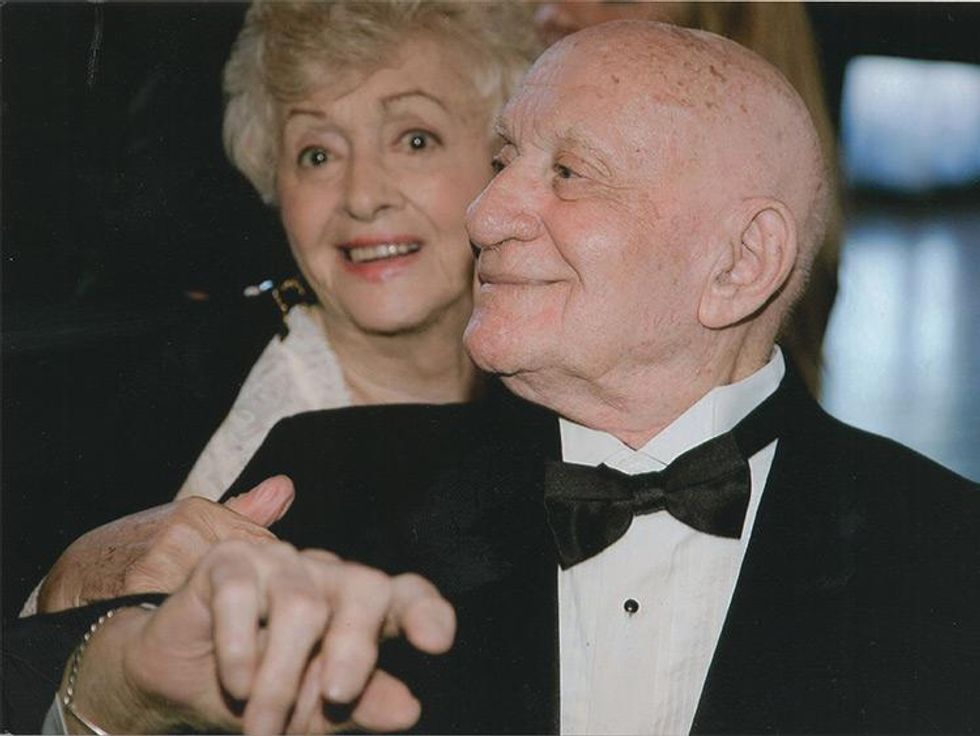 During the 1970s, once their girls had moved out, Roman frequently disappeared for weeks on end. He'd have affairs, then return to Ruth after a lover left him, or robbed him, or both. He says he could never find what he was looking for in these men; he could never fall in love.
During the 1970s, once their girls had moved out, Roman frequently disappeared for weeks on end. He'd have affairs, then return to Ruth after a lover left him, or robbed him, or both. He says he could never find what he was looking for in these men; he could never fall in love. 
















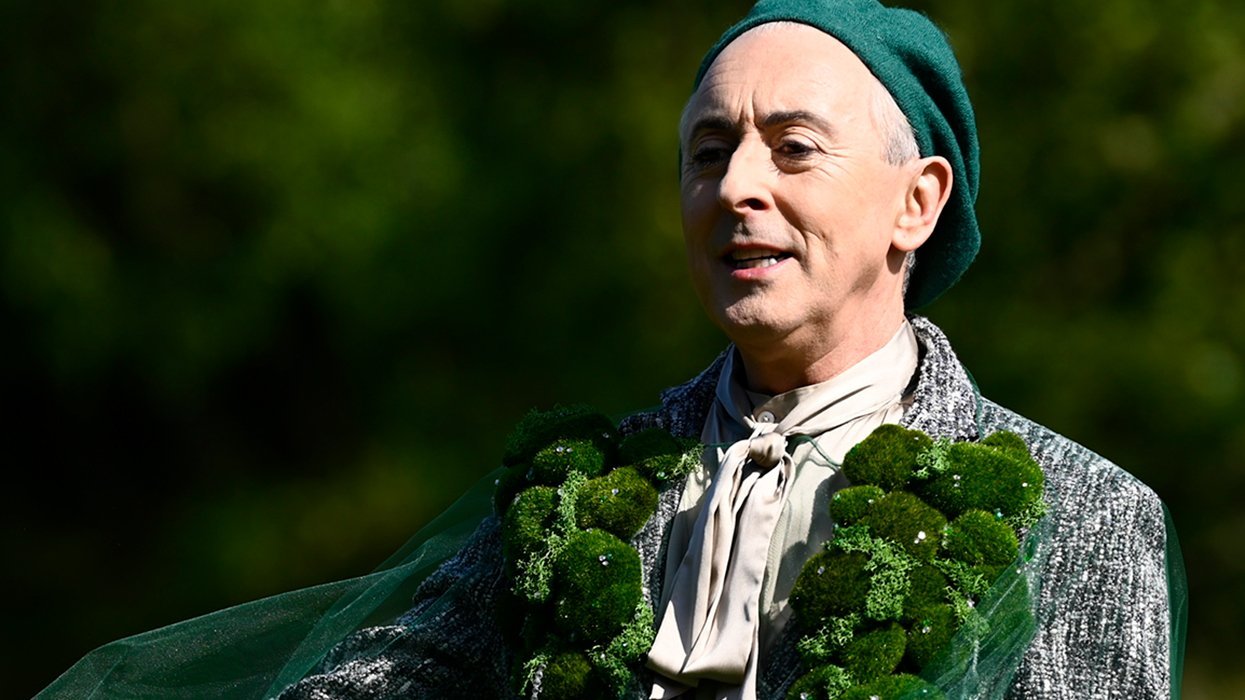


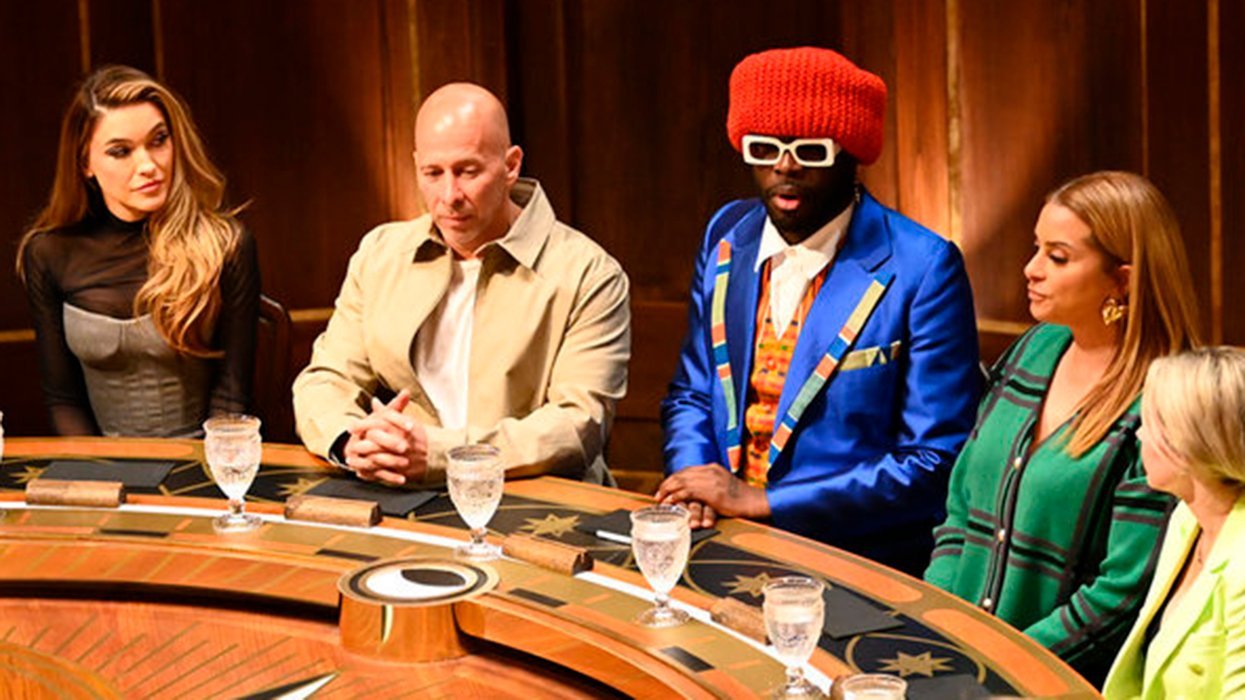


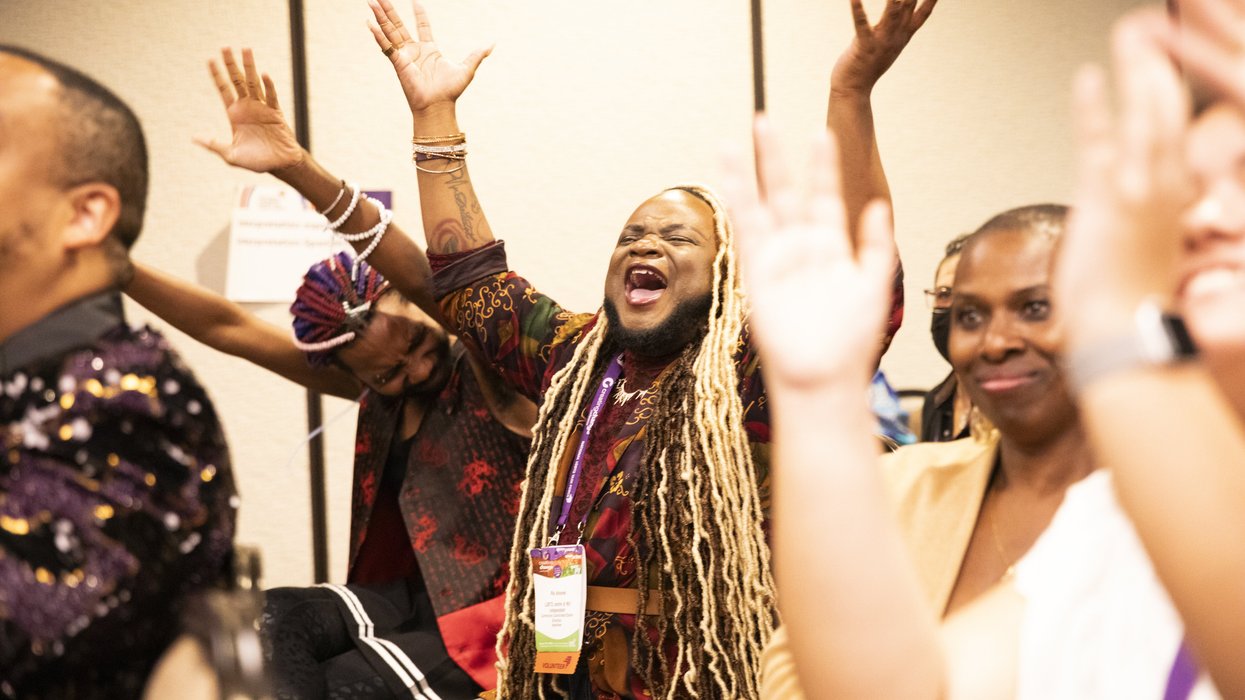

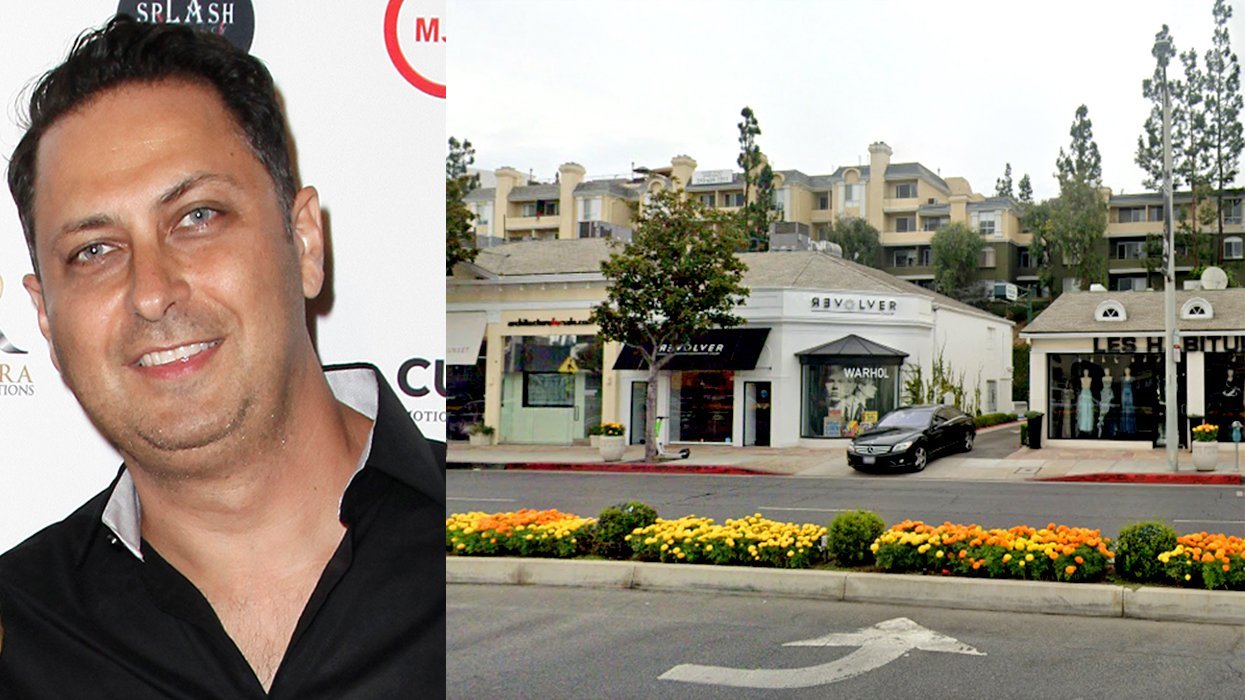
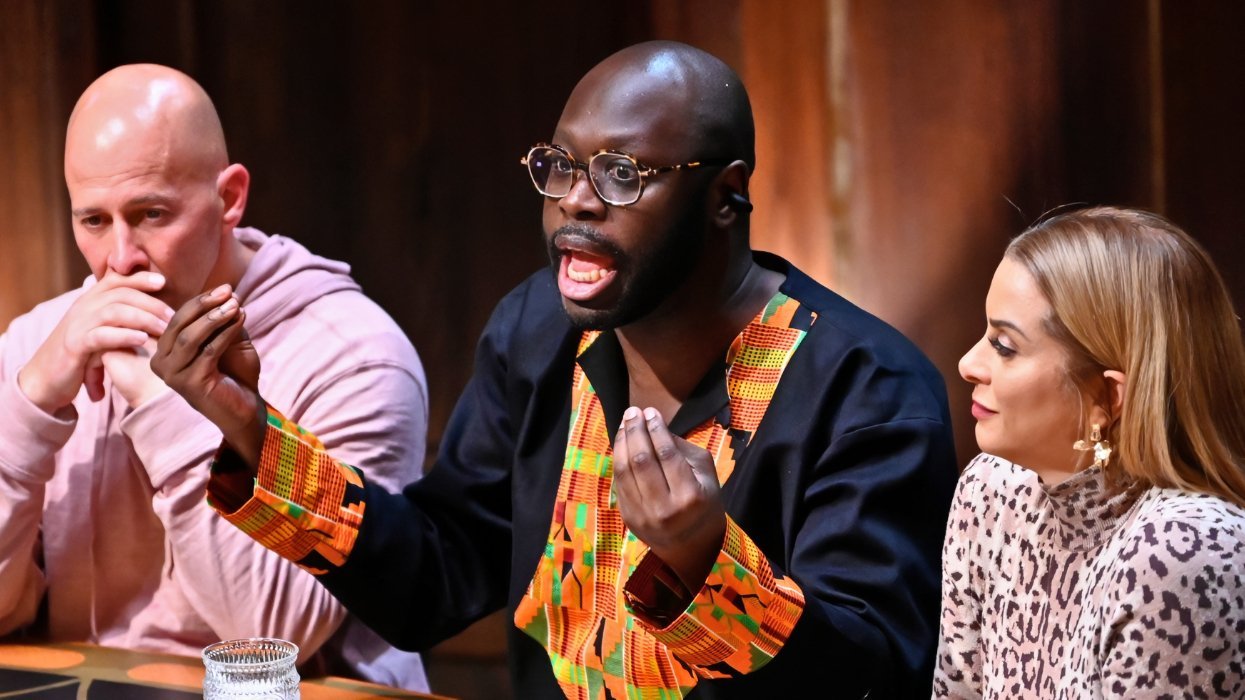



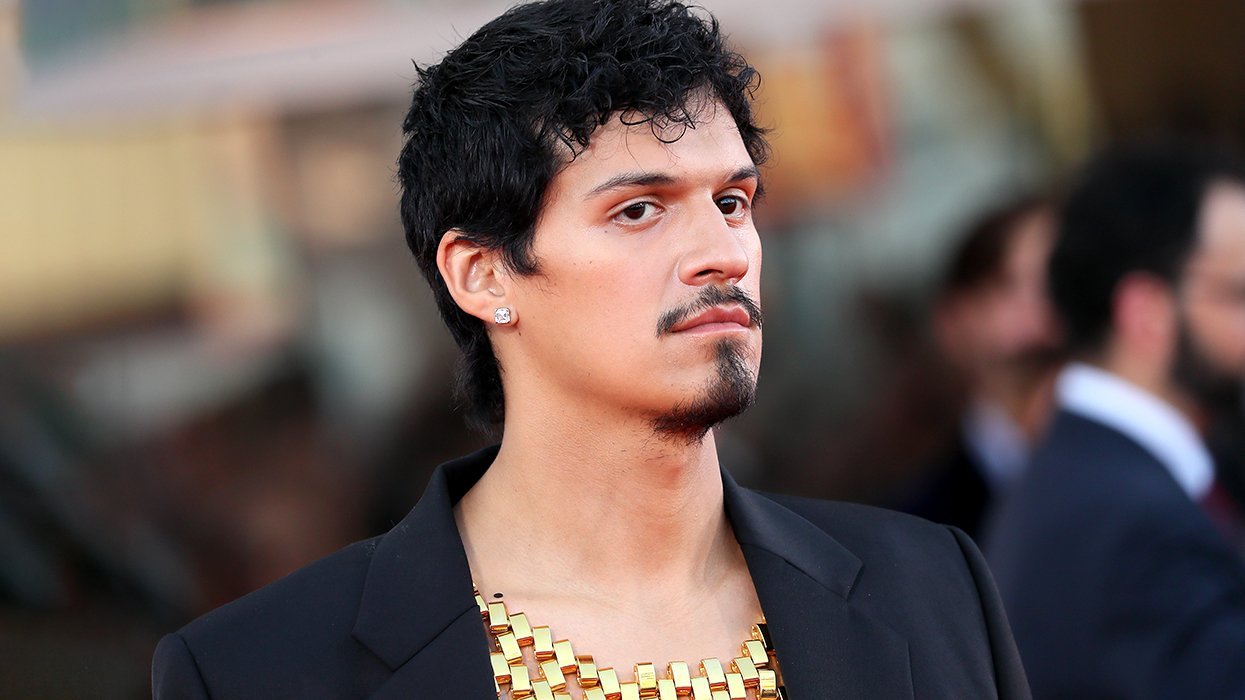

















































Beware of the Straightors: 'The Traitors' bros vs. the women and gays